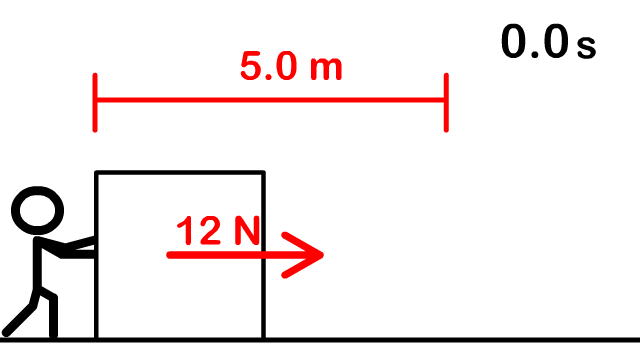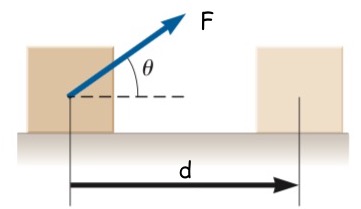Work
In physics, work is given a very specific meaning to describe what is accomplished when a force acts on an object, and the object moves through a distance.
Specifically, the work done on an object by a constant force (constant in both magnitude and direction) is defined to be the product of the magnitude of the displacement times the component of the force parallel to the displacement.



`W=Fd`
where `d` is the displacement moved in the direction of the force.
The work done by a constant force on the object is the product of the magnitude of the force, the magnitude of the displacement and `cosθ`, where `θ` is the angle between the force and displacement vectors:

`W = Fdcosθ`
The units of work are those of force multiplied by those of length. Therefore, the SI unit of work is the newton • meter (`N • m = kg • m^2//s^2`). This combination of units is used so frequently that it has been given a name of its own, the joule (`J`).